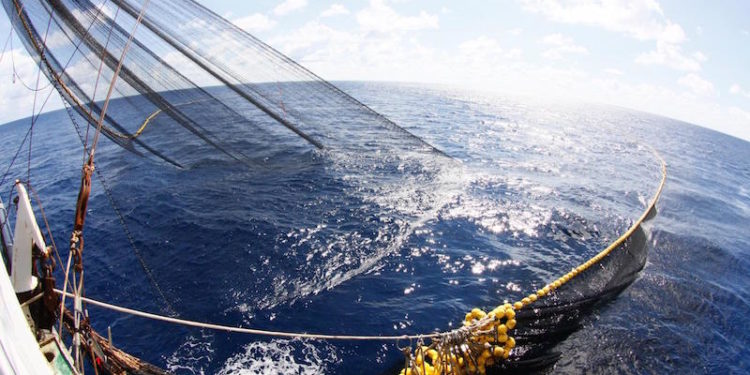The International Seafood Sustainability Foundation (ISSF) has set out its position statement in advance of the 22nd Session of the Indian Ocean Tuna Commission (IOTC), taking place in Bangkok this week.
ISSF states that one of its highest priority items for IOTC is to advance the region’s management strategy evaluations for albacore, yellowfin and bigeye tuna, which have not been fully evaluated, adopt species-specific harvest strategies, and conduct a review of limit reference points to pave the way for the adoption of harvest control rules by 2019.
‘ISSF is concerned that the Commission’s progress on harvest control rules for stocks that need stricter and more targeted management has slowed, based in part on a lack of resources for its critically important harvest strategy work,’ ISSF President Susan Jackson said.
‘The Commission has taken steps over the last three years to demonstrate its intention to implement carefully planned harvest strategies, but has made little progress on execution this year. It’s important that the Commission regains momentum at the upcoming Annual Session in Bangkok. That starts with considering the Science Committee endorsed MSE outcomes and taking other needed decisions in line with Resolution 15/10 that will lead to the adoption of HCRs next year.’
ISSF also advocates intensified FAD management measures, including of supply and tender vessels, full implementation of a non-entangling FAD requirement, and regional support for projects that test biodegradable FADs.
in addition, ISSF is asking IOTC to require 100% observer coverage on large-scale purse seine vessels, to increase longline observer coverage to 20%, to develop standards so that electronic monitoring can be used to ultimately achieve 100% observer coverage in both purse-seine and longline fisheries, and to strengthen the IOTC compliance assessment process.
The ISSF position statement urges IOTC to move forward with harvest strategies for all species within its remit, pointing out that IOTC’s own science committee reports that Indian Ocean yellowfin tuna is overfished with 67.7% probability, billfish, such as black and striped marlin, in the Indian Ocean are overfished, with 80% and 60% probability, respectively, while longtail tuna, a species critical to the region’s food security, is overfished with 67% probability.
‘Harvest Strategies, which include target and limit reference points (TRPs and LRPs) together with harvest control rules, provide pre-agreed rules for the management of fisheries resources and action to be taken in response to changes in stock status. Pre-agreed rules and strategies enable prompt management action to avoid overfishing or to rebuild stocks and reduce protracted negotiations that can lead to further declines in the stock,’ ISSF states.









